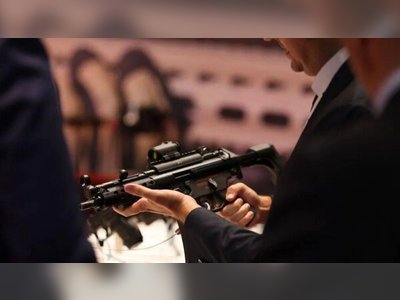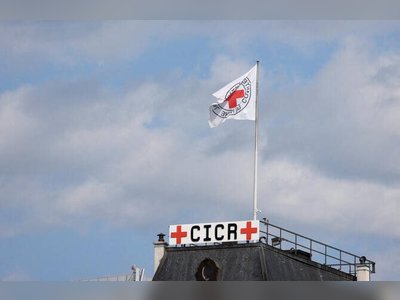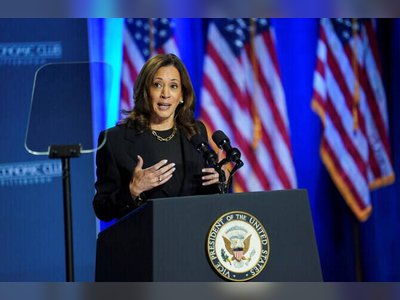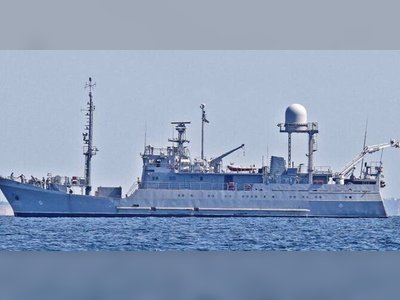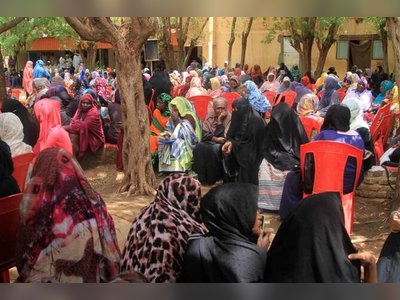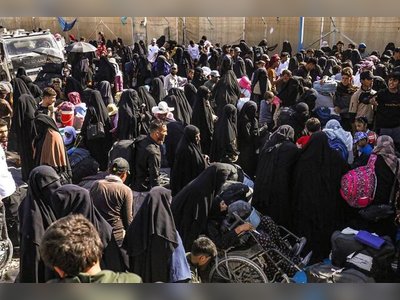
UN Votes to End Peacekeeping Force in Lebanon after Nearly Five Decades
The UN Security Council unanimously voted to terminate the UNIFIL peacekeeping force in southern Lebanon at the end of next year.
The UN Security Council voted unanimously on Thursday to terminate the UNIFIL peacekeeping force in southern Lebanon at the end of next year after nearly five decades.
This decision was made in response to demands from the United States and its close ally, Israel.
The United States initially sought a six-month termination but later advocated for a one-year extension.
Consequently, UNIFIL has been authorized to fulfill a final 16-month mandate, concluding its activities near Lebanon’s border with Israel by December 31, 2026.The multinational peacekeeping force was established to oversee the withdrawal of Israeli troops from southern Lebanon following Israel's 1978 invasion.
Its mission expanded after the month-long conflict between Israel and Hezbollah in 2006.
Since then, UNIFIL has been authorized to carry out limited activities near the UN-drawn border known as the Blue Line.Following the recent conflict between Israel and Hezbollah, Lebanese officials have emphasized the need for UNIFIL's continued presence.
They argue that Lebanon’s underfunded and overextended military lacks the capacity to patrol the entire region independently.
The Trump administration had advocated for the immediate closure of UNIFIL and significant reductions in US funding, viewing the operation as a waste of resources that delays the goal of eliminating Hezbollah's influence and restoring full security control to the Lebanese armed forces.The resolution adopted by the Security Council aims to have the Lebanese government assume responsibility for securing southern Lebanon north of the Blue Line.
While it calls on Israel to withdraw its forces from areas north of the Blue Line, no specific mention of a pullout was made in the remarks delivered.
The resolution emphasizes the importance of UNIFIL's continued presence in maintaining stability in Lebanon and the region, de-escalating tensions, enforcing the ceasefire, and supporting Lebanese forces’ deployment in the south.Some critics argue that Israel’s continued presence in Lebanon violates past agreements, making peace and stability elusive in the region.
In response, Israeli officials argue that UNIFIL has failed to address Hezbollah's military buildup, providing them with a cover to strengthen their positions.
Strengthening the Lebanese armed forces is considered essential for reclaiming full sovereignty from Hezbollah, according to these critics.
Israel is open to negotiating the enforcement of the border with Lebanon if the country moves towards disarming Hezbollah.The resolution urges the international community to intensify its support for the Lebanese armed forces through equipment, material, and financial assistance.
This decision was made in response to demands from the United States and its close ally, Israel.
The United States initially sought a six-month termination but later advocated for a one-year extension.
Consequently, UNIFIL has been authorized to fulfill a final 16-month mandate, concluding its activities near Lebanon’s border with Israel by December 31, 2026.The multinational peacekeeping force was established to oversee the withdrawal of Israeli troops from southern Lebanon following Israel's 1978 invasion.
Its mission expanded after the month-long conflict between Israel and Hezbollah in 2006.
Since then, UNIFIL has been authorized to carry out limited activities near the UN-drawn border known as the Blue Line.Following the recent conflict between Israel and Hezbollah, Lebanese officials have emphasized the need for UNIFIL's continued presence.
They argue that Lebanon’s underfunded and overextended military lacks the capacity to patrol the entire region independently.
The Trump administration had advocated for the immediate closure of UNIFIL and significant reductions in US funding, viewing the operation as a waste of resources that delays the goal of eliminating Hezbollah's influence and restoring full security control to the Lebanese armed forces.The resolution adopted by the Security Council aims to have the Lebanese government assume responsibility for securing southern Lebanon north of the Blue Line.
While it calls on Israel to withdraw its forces from areas north of the Blue Line, no specific mention of a pullout was made in the remarks delivered.
The resolution emphasizes the importance of UNIFIL's continued presence in maintaining stability in Lebanon and the region, de-escalating tensions, enforcing the ceasefire, and supporting Lebanese forces’ deployment in the south.Some critics argue that Israel’s continued presence in Lebanon violates past agreements, making peace and stability elusive in the region.
In response, Israeli officials argue that UNIFIL has failed to address Hezbollah's military buildup, providing them with a cover to strengthen their positions.
Strengthening the Lebanese armed forces is considered essential for reclaiming full sovereignty from Hezbollah, according to these critics.
Israel is open to negotiating the enforcement of the border with Lebanon if the country moves towards disarming Hezbollah.The resolution urges the international community to intensify its support for the Lebanese armed forces through equipment, material, and financial assistance.
